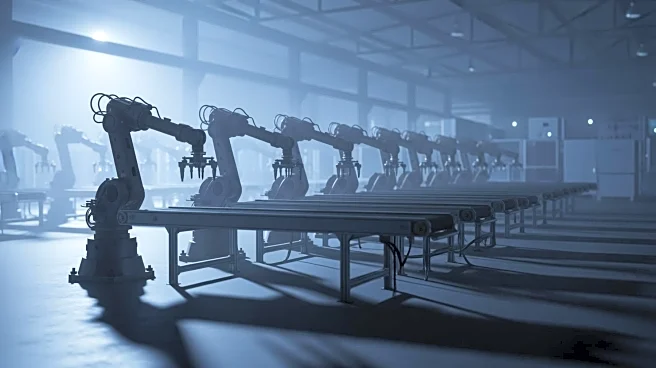What's Happening?
Kroger has announced the closure of three automated fulfillment centers located in Pleasant Prairie, Wisconsin; Frederick, Maryland; and Groveland, Florida. The closures are part of Kroger's strategy to enhance delivery services and improve e-commerce
profitability. The company plans to monitor the performance of its remaining centers, which are operated in partnership with British online supermarket and technology group Ocado. Kroger's decision is expected to result in significant job losses, with 211 positions affected in Wisconsin and 935 in Florida, according to WARN notices. The closures are scheduled for February 1, 2026, and are part of a broader review of Kroger's fulfillment network initiated in September.
Why It's Important?
The closure of these fulfillment centers marks a significant shift in Kroger's e-commerce strategy, reflecting changes in consumer behavior post-pandemic. As shoppers return to physical stores, the economic viability of dedicated e-commerce facilities is being reassessed. Kroger's move to strengthen partnerships with delivery firms like Instacart, DoorDash, and Uber Eats suggests a pivot towards more efficient delivery models. This decision could impact the grocery delivery market, potentially influencing other retailers to reconsider their e-commerce strategies. The job losses associated with the closures highlight the human cost of such strategic shifts, affecting hundreds of workers and their communities.
What's Next?
Kroger will continue to operate five remaining fulfillment centers in Ohio, Texas, Georgia, Colorado, and Michigan. The company is expected to incur approximately $2.6 billion in impairment and related charges due to the closures. Ocado, Kroger's partner, will receive over $250 million in compensation and anticipates a financial impact of about $50 million in fiscal year 2026. As Kroger adapts its strategy, other grocery retailers may follow suit, potentially leading to further consolidation in the e-commerce sector. Stakeholders, including employees and local communities, will be closely monitoring the impact of these changes.
Beyond the Headlines
The decision to close these centers underscores the challenges faced by retailers in balancing automation with human employment. While automation can enhance efficiency, it often leads to job displacement, raising ethical and social concerns. Kroger's shift towards partnerships with delivery firms may also reflect broader trends in the retail industry, where collaboration is increasingly favored over in-house operations. This could lead to long-term changes in how grocery delivery services are structured and operated, influencing consumer experiences and expectations.

















